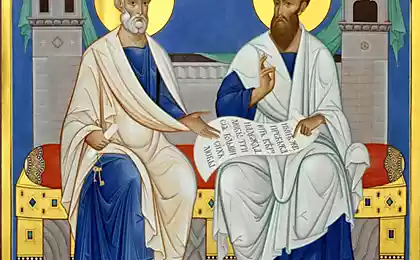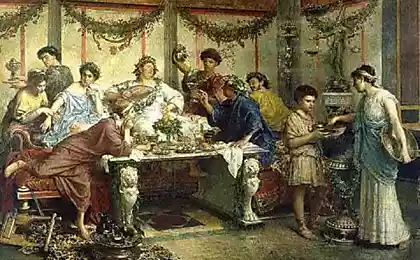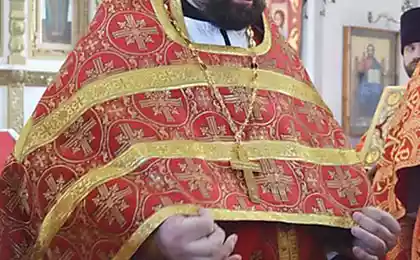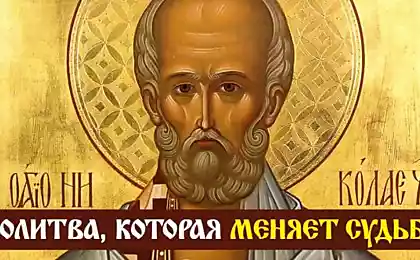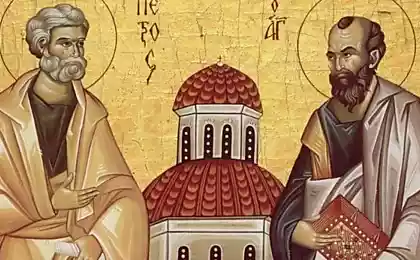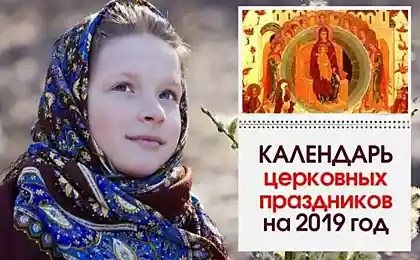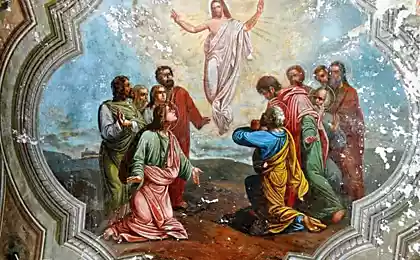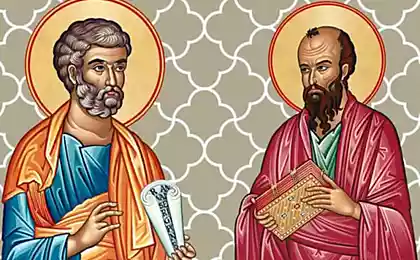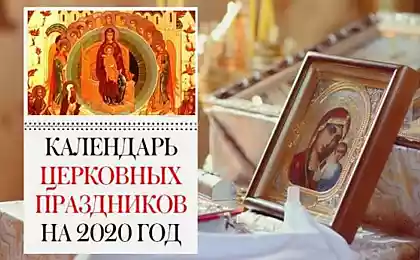726
The history of Lent
To the III century in different Christian Churches, believers in different ways preparing to celebrate the Easter day. Famous Christian apologist Tertullian and Saint Irenaeus of Lyons in the second century talking about the practice 40 hour fast (from the evening of good Friday until after the Easter Liturgy), during which Christians do not accept food. The post from good Friday to Easter was an imitation of the forty-day fasting of the Savior, and also the literal understanding of the phrase of Christ in the gospel of Matthew: "And Jesus said to them: may grieve the sons of the bridechamber, while the bridegroom is with them? But the days will come, when taken away from them the bridegroom then they will fast". (Matt. 9,15)
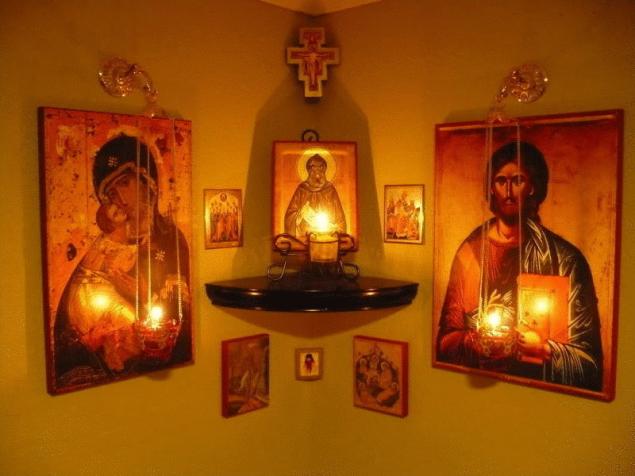
At the thought of the first Christians, the time when Christ was taken away from the faithful, began with the death on the cross until the Resurrection, which determines the duration of the post.
In the middle of the III century in some local Churches the six-day post appears, as a reminder of the events of Holy week. While some Christians believed such a feat is excessive, and continued fasting some forty hours. In the second half of the third century the Alexandrian Bishop Dionysius the Great, answering the question of when to end the lent, in the evening on Holy Saturday or on Easter morning after the singing of a rooster, talking about various practices of abstinence: "And six days of fasting are observed not all equal and alike; for some spend days without food, and none other; to those who are very weak from long fasting and almost die from inamoena, forgivable earlier eating; but if the other four previous days post ... do not fasting, and even raskolnichih and then when come the last two days, i.e. Friday and Saturday, continuously fasting and think that doing something great and glorious".
At the beginning of the V century all the Local Churches come to the idea of forty days of lent as a tithe of the year, and since then, the duration of great lent in the different Churches varies from 6 to 8 weeks. The problem was how to count Saturdays and Sundays, during which the post is canceled.
HOW LONG IS LENT?Lent begins with the Monday of the first week of great lent, and continues until Friday 6 weeks what can you learn from the songs that sounds in this day in the temple. Then Lazarus Saturday begins the events of Holy week, which is not included in lent.
But there is another way to turn the 48 days of fasting in the "tithe of the year". As you know, a normal year is 365 days and a few hours. If from seven weeks to deduct all Saturdays and Sundays, when the post is cancelled, we will get 35 days + a few hours of fasting during the Paschal night.
Already in the IV –V century, the Church considered the Great lent are obligatory for all Christians. The rules of the Ecumenical councils and in the texts of the Holy fathers, we can find mention of the fact that a Christian not observing lent, for some time could be absent from the Church. In one of the sermons of Saint John Chrysostom says that by the fourth century the Holy lent has changed the habitual way of life of Constantinople: "there is no today, no noise, no screaming, no razresevanje meats or downhill chefs; it all stopped, and our city now is like a fair, modest and chaste wife."
The forty-day duration of lent is adopted by the whole Church, this imitation of the position of the Savior in the wilderness, and fasting of the prophet Moses, and the standard time of fasting for those who wanted to be baptized. In the ancient Church baptized at Easter and to the catechumens preparing for this event for 40 days, praying in the temple, learning the basics of the faith and fasting. Other Christians tried to take communion during the Holy lent.
WHAT A GREAT POST ON THE RULES OF THE CHURCH?If to simplify the recommendations of the Typicon (Church bylaws), the post involves limiting the number of meals (once a day) and its quality (bread and water, warm vegetables without oil xerophagy), and even complete refusal of food and water (for example, on Monday and Tuesday of the first week).
That is, from Monday to Friday for all weeks of lent except in special cases, the Christian is once a day, very simple food without oil (bread, water, vegetables).
On Saturday and Sunday allowed for two meals with vegetable oil and wine (note that the Charter allows the Church to drink more than a glass of wine), so Saturdays and Sundays are not considered Lenten days.
Note that in the ancient Church for some time have argued that in these days during Great lent. Some Christians held that it is permissible to consume eggs, dairy products and even poultry, but in the end it was decided that the weakening of the post in Saturday and Sunday can only consist in increasing the number of meals and diversity of plant foods.
Such rigor was linked to the main idea of the post – food should be cheap and quick to prepare, and the vacant time and money, the Christian must use to participate in the worship and works of mercy. The difference in cost between conventional and vegetable dinner it was proposed to give to the poor.
Quite early on the Church realized that such strict rules of fasting can be all Christians, but because the canons of the Church set some at least of the post, which must be observed by all believers. It is the refusal of meat, milk and eggs, that is the post of fish, hot vegetable food oil is the maximum degree of indulgence to human infirmities.
Now all the issues with respect to food of fasting Orthodox Christian should discuss with your Confessor. published
P. S. And remember, only by changing their consumption — together we change the world! ©
Join us in Facebook , Vkontakte, Odnoklassniki
Source: foma.ru/istoriya-velikogo-posta-2.html

At the thought of the first Christians, the time when Christ was taken away from the faithful, began with the death on the cross until the Resurrection, which determines the duration of the post.
In the middle of the III century in some local Churches the six-day post appears, as a reminder of the events of Holy week. While some Christians believed such a feat is excessive, and continued fasting some forty hours. In the second half of the third century the Alexandrian Bishop Dionysius the Great, answering the question of when to end the lent, in the evening on Holy Saturday or on Easter morning after the singing of a rooster, talking about various practices of abstinence: "And six days of fasting are observed not all equal and alike; for some spend days without food, and none other; to those who are very weak from long fasting and almost die from inamoena, forgivable earlier eating; but if the other four previous days post ... do not fasting, and even raskolnichih and then when come the last two days, i.e. Friday and Saturday, continuously fasting and think that doing something great and glorious".
At the beginning of the V century all the Local Churches come to the idea of forty days of lent as a tithe of the year, and since then, the duration of great lent in the different Churches varies from 6 to 8 weeks. The problem was how to count Saturdays and Sundays, during which the post is canceled.
HOW LONG IS LENT?Lent begins with the Monday of the first week of great lent, and continues until Friday 6 weeks what can you learn from the songs that sounds in this day in the temple. Then Lazarus Saturday begins the events of Holy week, which is not included in lent.
But there is another way to turn the 48 days of fasting in the "tithe of the year". As you know, a normal year is 365 days and a few hours. If from seven weeks to deduct all Saturdays and Sundays, when the post is cancelled, we will get 35 days + a few hours of fasting during the Paschal night.
Already in the IV –V century, the Church considered the Great lent are obligatory for all Christians. The rules of the Ecumenical councils and in the texts of the Holy fathers, we can find mention of the fact that a Christian not observing lent, for some time could be absent from the Church. In one of the sermons of Saint John Chrysostom says that by the fourth century the Holy lent has changed the habitual way of life of Constantinople: "there is no today, no noise, no screaming, no razresevanje meats or downhill chefs; it all stopped, and our city now is like a fair, modest and chaste wife."
The forty-day duration of lent is adopted by the whole Church, this imitation of the position of the Savior in the wilderness, and fasting of the prophet Moses, and the standard time of fasting for those who wanted to be baptized. In the ancient Church baptized at Easter and to the catechumens preparing for this event for 40 days, praying in the temple, learning the basics of the faith and fasting. Other Christians tried to take communion during the Holy lent.
WHAT A GREAT POST ON THE RULES OF THE CHURCH?If to simplify the recommendations of the Typicon (Church bylaws), the post involves limiting the number of meals (once a day) and its quality (bread and water, warm vegetables without oil xerophagy), and even complete refusal of food and water (for example, on Monday and Tuesday of the first week).
That is, from Monday to Friday for all weeks of lent except in special cases, the Christian is once a day, very simple food without oil (bread, water, vegetables).
On Saturday and Sunday allowed for two meals with vegetable oil and wine (note that the Charter allows the Church to drink more than a glass of wine), so Saturdays and Sundays are not considered Lenten days.
Note that in the ancient Church for some time have argued that in these days during Great lent. Some Christians held that it is permissible to consume eggs, dairy products and even poultry, but in the end it was decided that the weakening of the post in Saturday and Sunday can only consist in increasing the number of meals and diversity of plant foods.
Such rigor was linked to the main idea of the post – food should be cheap and quick to prepare, and the vacant time and money, the Christian must use to participate in the worship and works of mercy. The difference in cost between conventional and vegetable dinner it was proposed to give to the poor.
Quite early on the Church realized that such strict rules of fasting can be all Christians, but because the canons of the Church set some at least of the post, which must be observed by all believers. It is the refusal of meat, milk and eggs, that is the post of fish, hot vegetable food oil is the maximum degree of indulgence to human infirmities.
Now all the issues with respect to food of fasting Orthodox Christian should discuss with your Confessor. published
P. S. And remember, only by changing their consumption — together we change the world! ©
Join us in Facebook , Vkontakte, Odnoklassniki
Source: foma.ru/istoriya-velikogo-posta-2.html



